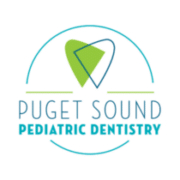POST-OP CARE
Providing the Best Post-Op Care Even After You Go Home
Caring For The Mouth After Local Anesthetic
Your child has had a local anesthetic for their dental procedure. As experts in pediatric dentistry, we want to provide you with some post-op care information about caring for your child’s mouth after local anesthesia. Here are some common things that can occur after the visit.
Lower jaw treatment: lower lips, teeth, cheek, and tongue may be “numb” or fat feeling
Upper jaw treatment: upper lip, teeth, cheek and roof of the mouth may feel “numb” or fat feeling
Children do not understand the effects of local anesthesia and often report “pain.” That can be the fat feeling or tingling as the numbness is wearing off. Often children may chew, scratch, suck or play with the numb lip, tongue, or cheek. These actions can cause minor irritations or severe tissue damage that can lead to swelling and pain. In most cases, even with severe tissue damage, the patient will heal normally over the next couple of days. Please monitor your child closely for approximately two hours following the appointment. It is often wise to keep your child on a liquid or soft diet until the anesthetic has worn off
Care Of The Mouth After Extraction
It is important to have your child not scratch, suck, chew, or rub the lips, tongue, or cheek while they are numb
Your child should be watched closely, so they do not injure his/her lip, tongue, or cheek before the anesthesia wears off
Keep their fingers and tongue away from the extraction area
Do not rinse their mouth for several hours
Do not let them spit excessively
Do not give them a carbonated beverage (Coke, Sprite, etc.) for the remainder of the day
Do not let them drink through a straw. It can pull out the clot
Watch for excessive bleeding
Some bleeding can be expected. If unusual bleeding occurs, place cotton gauze, wet paper towel, or washcloth firmly over the extraction area and bite down or hold in place for fifteen minutes. A tea bag can also aid in clotting. Repeat if necessary
Maintain a soft diet for a day or two, or until your child feels comfortable eating normally again
Avoid strenuous sports or physical activity for several hours after the extraction
Care After A Stainless Steel Crown
Children often complain about a crown feeling tight for the first couple of days
Please avoid eating anything for 1 hour after your crown placing appointment for the cement to set up
WARNING – Foods that are sticky can loosen crowns and even make them come off! Examples of foods to avoid are Fruit snacks, fruit leather, tootsie rolls, gum, jolly ranchers, Laffy taffy, licorice etc.
If your child’s crown comes off, please give our office a call and make an appointment within one week. If at all possible, please bring the crown to the appointment. If they swallow it, please do not retrieve it from the bathroom
Remember to properly brush and floss the crown as you would any of your child’s other teeth. WARNING: Floss crowns by pulling out from the side, not by pulling upward along the side of the tooth
Post-Op Pain
The pain from extraction is due to the breakage of bone. Most children’s bones are not affected by an extraction procedure, so the pain is generally minimal after the tooth is removed
We recommend for mild to moderate discomfort using Children’s Tylenol, Advil, or Motrin as directed for the child’s age. If a medicine was prescribed, follow the directions on the bottle
Care Of Sealants
Good oral hygiene is still very important in preventing decay because sealants will only protect the most vulnerable part of the tooth
Your child should not eat ice or hard candy, which can fracture the sealant
Regular dental appointments are recommended to be certain the sealants remain in place
Oral Discomfort After A Cleaning
A dental cleaning can cause some bleeding and swelling causing mild discomfort. This is not due to a “rough cleaning” but to tender and inflamed gums from less than perfect home oral hygiene. If there is mild discomfort after your child’s cleaning with our specialists in pediatric dentistry, we recommend:
A warm salt water rinse 2 – 3 times per day (1 teaspoon of salt in 8 oz of warm water)
Over-the-counter Children’s Tylenol, Advil (ibuprofen) as directed for the age of the child
REQUEST AN APPOINTMENT
With Puget Sound Pediatric Dentistry
"*" indicates required fields
919 State Ave
#104
Marysville, WA 98270
(360) 659-8100
Mon-Fri: 7:30am-5pm
14090 Fryelands Blvd SE
Suite 348
Monroe, WA 98272
(360) 863-8700
Mon-Fri: 7:30am-5pm
9421 N Davies Road
Suite A
Lake Stevens, WA 98258
(425) 367-4149
Mon-Fri: 7:30am-5pm
7104 265th Street NW
#110
Stanwood, WA 98292
(360) 339-8000
Mon-Fri: 7:30am-5pm
3224 Colby Ave
Ste A
Everett, WA 98201
(425) 595-4246
Mon-Fri: 7:30am-5pm
